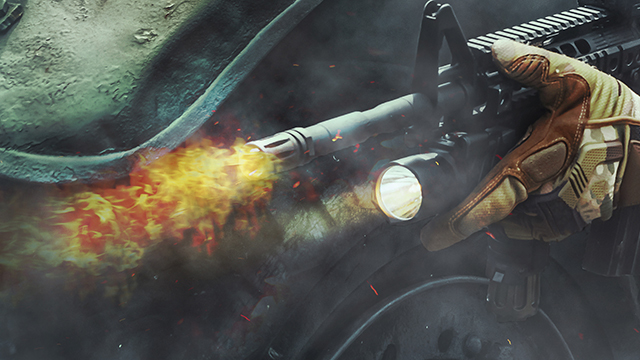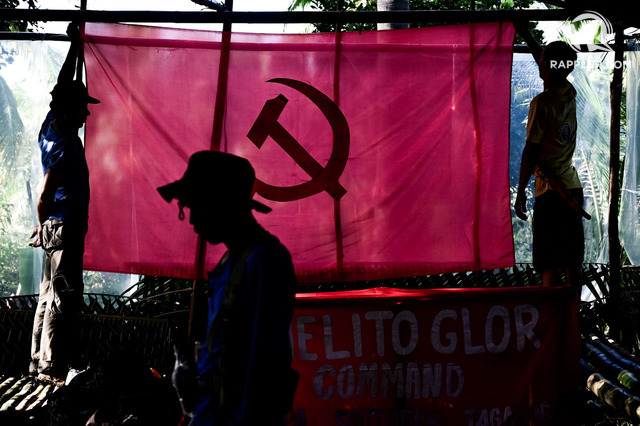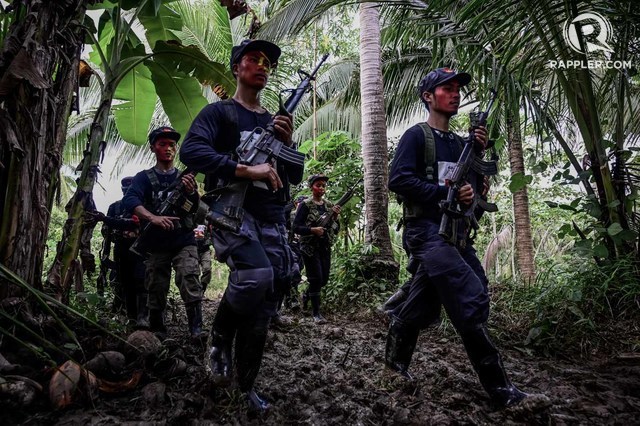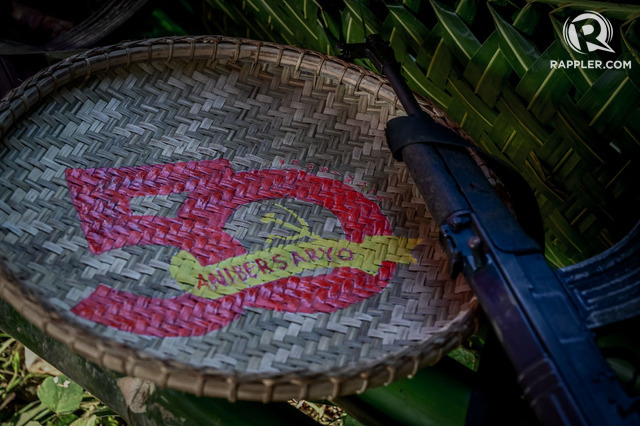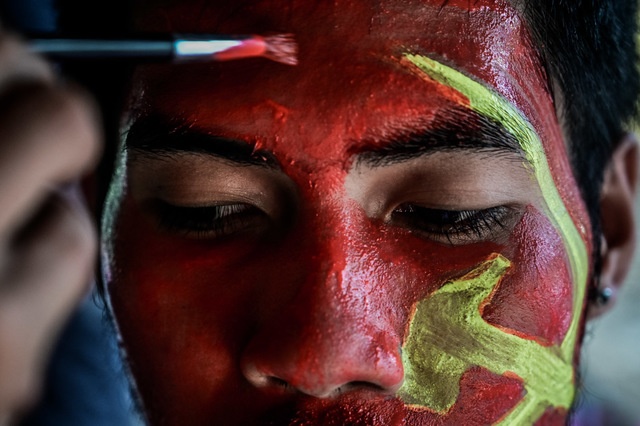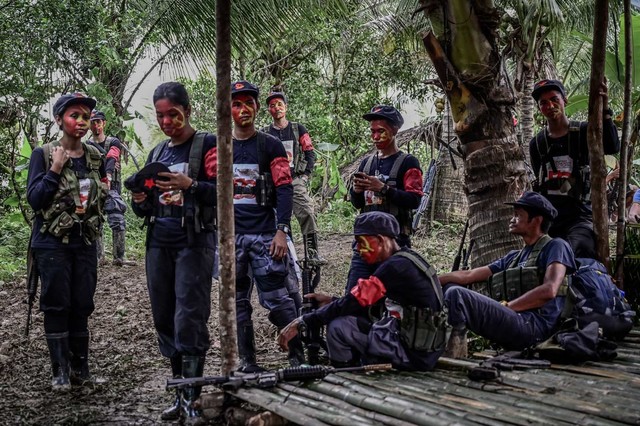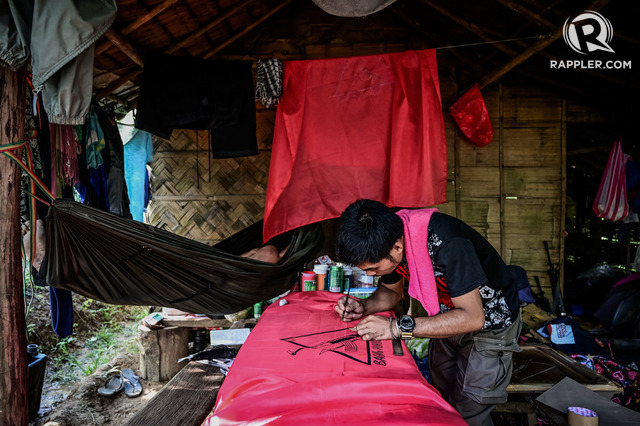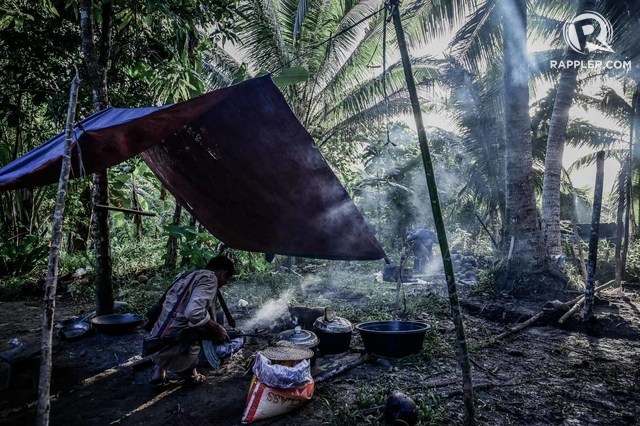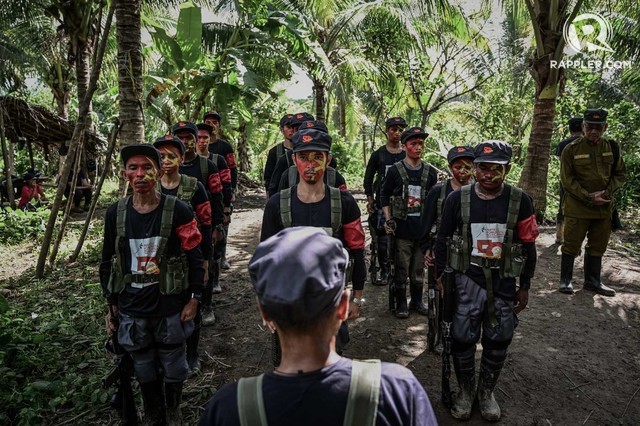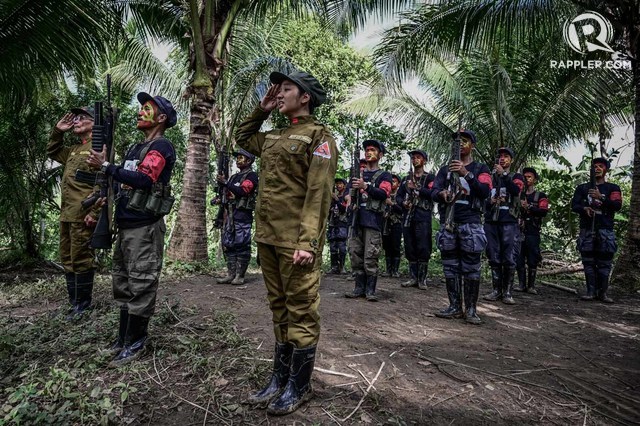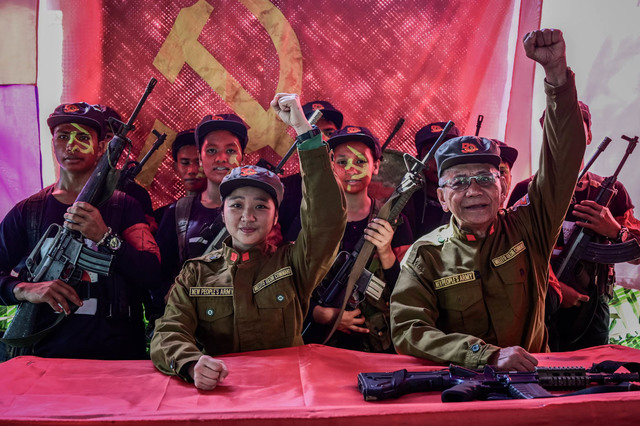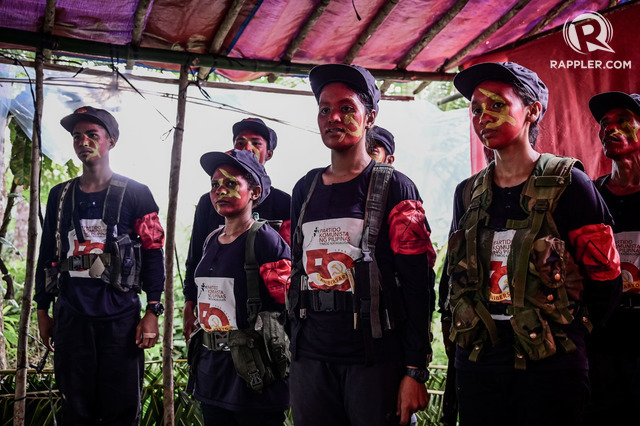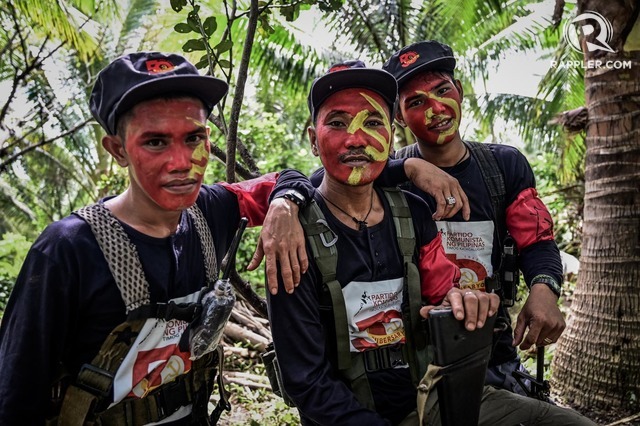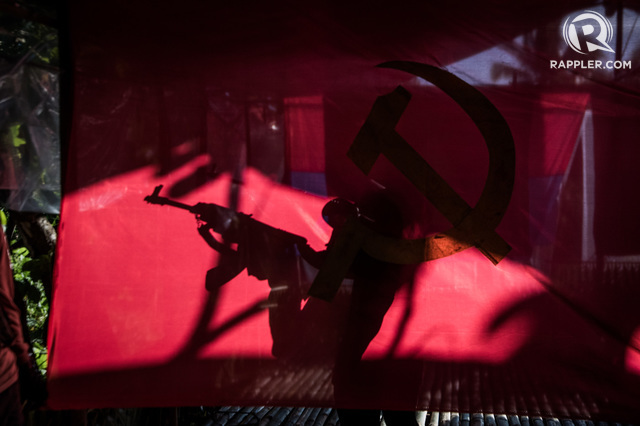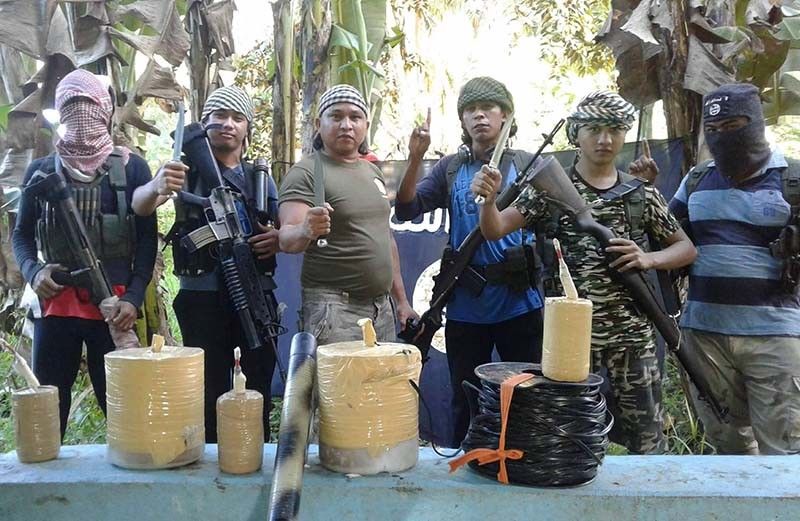A veritable Pandora’s box of nasty surprises would be opened once the Philippines pushes for renegotiations. Is that what the majority of Filipinos want?
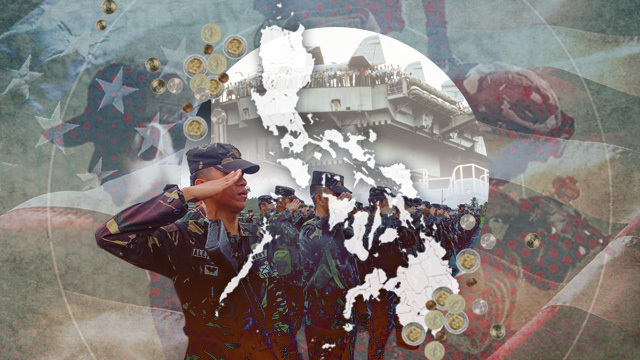
Several days ago, Delfin Lorenzana, the Secretary of National Defense, issued intriguing statements pertaining to a purported Philippine government desire to review the Philippine-United States Mutual Defense Treaty. In the words of Lorenzana:
“Nasabi ko lang 'yan kasi tinanong ako eh if it’s time to review. Sabi ko siguro, because that was done in 1951… There was this raging Cold War. May Cold War noon eh. Do we still have a Cold War today? Is it still relevant to our security? Baka hindi na.”
(I only said that because I was asked if it’s time to review. I said perhaps, because that was done in 1951… There was this raging Cold War. There was a Cold War then. Do we still have a Cold War today? Is it still relevant to our security? Maybe not anymore.)
Not content with uttering that, he even followed it up with a reality-defying statement that completely disregarded China’s territorial claims in our EEZ, the West Philippine Sea and the Kalayaan Island Group:
“We have to look at it dispassionately without considering past ties, future ties.... 'Di natin sinasabi to strengthen para tulungan tayo kung may gulo. Sino ba kalaban natin? Are we hoping someone will attack us here in the Philippines? I don’t think so. Wala tayong kalaban siguro na sasakupin tayo eh.”
(We have to look at it dispassionately without considering past ties, future ties.... We’re not saying we’ll strengthen it so that they will help us if there is a fight. Who are we fighting? Are we hoping someone will attack us here in the Philippines? I don’t think so. I don’t think we have an enemy that would take over our country.)
In an effort to strike a balance with those previous questionable declarations, Lorenzana then stated that the Philippines has been benefitting from the MDT, the Visiting Forces Agreement, the Enhanced Defense Cooperation Agreement. The objective of the review is to determine if the Philippines should maintain, strengthen or scrap the treaty.
Assessing Filipino grievances
The Treaty Obligations of the US under the MDT are as follows:
ARTICLE IV. Each Party recognizes that an armed attack in the Pacific area on either of the Parties would be dangerous to its own peace and safety and declares that it would act to meet the common dangers in accordance with its constitutional processes.
Any such armed attack and all measures taken as a result thereof shall be immediately reported to the Security Council of the United Nations, Such measures shall be terminated when the Security Council has taken the measures necessary to restore and maintain international peace and security.
ARTICLE V. For the purpose of Article IV, an armed attack on either of the Parties is deemed to include an armed attack on the metropolitan territory of either of the Parties, or on the Island territories under its jurisdiction in the Pacific Ocean, its armed forces, public vessels or aircraft in the Pacific.
On the Philippine side, the grievances against the MDT would be on the wording of the triggers for US involvement in hostilities in this side of the world. The debate is focused on what “Pacific” refers to. Does it mean the Pacific Ocean or the Pacific area of operations which encompasses everything west of the US West Coast up to the Indian Ocean?
If it is based on actual physical operations then one sees American involvement in operational areas way west of the Pacific Ocean such as in the South China Sea, and historically in Korea and Vietnam. In fact, the Philippines is not even in the Pacific Ocean and is situated in between the Philippine Sea and the South China Sea. Yet there had been American forces based in the country as part of the forward deployed forces of the U.S. Pacific Command then. Nowadays, the US Pacific Command has been renamed the US Indo-Pacific Command which reveals the recognition of an even larger area of responsibility as compared to before.
However, it appears that the Philippines is adamant about wanting a more specific geographical area that should include its territories in the West Philippine Sea. That would be a problem as since the 1970s, the US has maintained a position of not taking sides in the territorial disputes. Its approach to the disputes is that of pushing for freedom of navigation instead. Post-World War 2, the US has frequently used deadly force to allow freedom of navigation in areas from the Persian Gulf to the Gulf of Sidra and in anti-piracy operations. Hence, the US position on freedom of navigation should not be taken as an empty threat.
Another Filipino grievance is the lack of an instant retaliatory clause in the treaty and the existing requirement to go through constitutional processes. The Philippine side wants the US side to be more decisive and interprets the constitutional process as the American side needing to consult with their Congress before any action is taken. The fact that executive decisions alone can be done to deploy US forces in conflict situations is not deemed acceptable by the Philippines. An example of executive decision is ironically the case of President George H.W. Bush’s order for US fighter jets to undertake persuasion flights against RAM rebels in 1989.
However, for the Philippine side to fully enjoy that privilege of automatic response from the United States, there would then be the need for American forces based in Philippine territory. Since the Philippines kicked out the bases in 1991, it then, by its very action, ensured that there will be no automatic reaction as tripwire American forces were removed from the country. In fact, the Chinese noticed that and in a few years began to move aggressively in the South China Sea against the Philippines. It may be said that the Philippine decision to remove the US bases in 1991 was the primary enabler for Chinese strategic moves into the South China Sea.
Fund complaints
Ever since the time of the bases, the issue of financial aid has been a constant irritant between Manila and Washington. For the Filipinos, they routinely claim that it is too small compared to other countries like Israel, Pakistan, Egypt. There is a disregard from the Philippine side of the peculiarities of Israel’s security situation or even that of Egypt and others. In fact it is illogical to say the least, for Filipino defense officials and diplomats to publicly maintain that there is no external threat to the Philippines and then complain to the Americans that not enough financial assistance is given to the Philippine military.
Complaints on materiel turnovers
Another constant complaint of Filipino officials is the issue of US materiel and weapons donations as being that of hand me downs and cast offs. To hear that from left-wing anti-American elements in the Philippines is expected, but to hear that from senior military and defense officials is downright laughable, if not irresponsible. It is irresponsible because these defense sector personalities had been involved or are aware of the joint defense assessments between the Philippines and the United States during the previous decade to establish a sense of logic and purpose in the capability buildup of the AFP.
Actually, some Filipino complaints border on the bizarre as in the case of one retired naval officer who does the talk circuit. In a press conference, he railed against the Americans, saying that their living quarters were better than that of the Filipinos during a particular exercise in an attempt to portray the US in an unfavorable light. What he did not mention was that the Americans themselves had built their own accommodations within the area using US taxpayer’s money and would most likely turn it over to the AFP upon completion of the exercise.
Due mainly to the moral bankruptcy of the Philippine elite, the country is mired in protracted insurgencies. Since the Philippine government cannot even get its act together to keep the country in one piece, it becomes necessary for the United States to also tailor fit its military assistance to the internal operational requirements of the Philippine defense sector.
At the same time, the US has to take into consideration the absorptive capacity of the Armed Forces of the Philippines in weapons systems. Given the insufficient and lopsided budgetary outlay for Philippine defense wherein approximately 80% of the funds goes to salaries and pensions, leaving a measly 20% for other requirements, the capacity of the AFP to maintain equipment, especially state-of-the-art ones, becomes suspect. Not unless it is also the desire of the Philippine side for the United States to bankroll the AFP as the Americans did during the height of the Cold War.
It then appears that the Philippines lives in the memory of the Cold War as it cannot seem to get out of its dependence on lavish freebies from the United States. As such, even the Philippine defense budget still retains its characteristic of American dependence wherein the US provided almost everything while salaries, pensions, and limited upkeep and maintenance were shouldered by the Philippine government. When the bases were removed and the American largesse was substantially lost, the Philippines, due to constitutional restrictions and fiscal limitations, failed to readjust the defense budget to meet the needs of external and internal defense. Unsurprisingly, by the late 1990s, the Philippines then fell back on seeking financial and materiel assistance from the US.
American perceptions
When considering a proposal to renegotiate or re-examine the Mutual Defense Treaty, it is important for the Filipino side to assess also how the Americans may view the Philippines as a treaty partner and ally. That is important because it will determine how far the Philippines can get in its discussions with the US especially with the mercurial Donald Trump at the helm in Washington DC.
US perceptions on the Philippines as a treaty ally are split. There is an emerging sentiment that the Filipinos are not worth the trouble and it might be a good idea to even scrap the MDT. This is countered by others who still view the Philippines as a piece of valuable real estate given its strategic location and hence, it would be advisable to continue the relationship regardless of Filipino behavior. These divergent perspectives are a product of how the Philippines has conducted itself as an ally in the past 30 years.
From the American perspective, the Philippine side has committed several actions that undermined the alliance. The first of course was the Senate rejection of the extension of the Military Bases Agreement in 1991. This put the Philippines in the doghouse when it came to military assistance. The second was the sudden pullout of the Philippine contingent in Iraq and the cozying up to China during the Arroyo administration. Third are the current antics of the Duterte administration and the enabling by the Philippine government of both Chinese and Russian presence in the Philippines and the region. Also the Duterte administration has displayed erratic and disruptive behavior regarding the alliance and Philippine participation in multilateral and bilateral military exercises sponsored by the US.
Hence the image of a stonewalling and an undependable Philippines from the American perspective should not come as a surprise. That perception may be hammered down on the Filipino delegation by their American counterparts. The Philippine side must be very clear, rational, and logical as to what it wants. Again, one must take into consideration the mercurial nature of Trump who is quick to tweet his foreign policy direction of the day. An unflattering description of the Philippines from an American perspective is that it appears to be getting out of its obligations as a mutual defense partner of the United States while at the same time trying to drag the US into its own security problems, from international to even domestic.
The elephant in the room
In the midst of all these noises from the Duterte administration on re-evaluating the MDT, it is important to take into consideration what Beijing thinks about this. Secretary Lorenzana should be aware that by now, the Chinese have a very good understanding of the inner workings of the Duterte administration.
The Duterte administration is as divided as the Philippines itself and many within have overtly displayed a pro-China sentiment from the President way down to some Cabinet secretaries and their underlings. That is the same as well in both the Philippine Senate and House of Representatives. Beijing would be foolish not to tap into this ready pool of sympathizers to disrupt the renegotiation of the MDT.
A veritable Pandora’s box of nasty surprises would be opened once the Philippines pushes for renegotiations. The objective of Beijing is to at least force a deadlock in Philippine and US negotiations that would spill over to a suspension of bilateral military activities. If such a thing happens, is that what the Philippine government wants? Is that what the hard-pressed and overextended Philippine military wants? Is that what the majority of Filipinos want?
To quote the “late” Han Solo, “I’ve got a bad feeling about this.”
[Jose Antonio Custodio is a security and defense consultant. He specializes in military history and has post-graduate studies in history from the University of the Philippines. He occasionally teaches history and political science in several universities in Metro Manila.]

